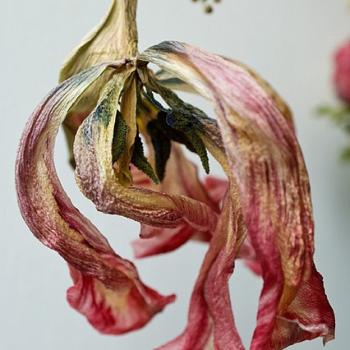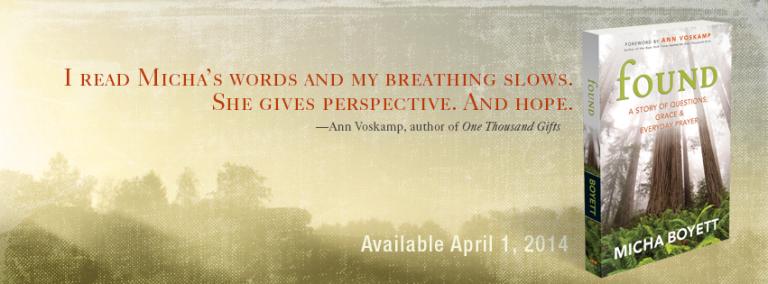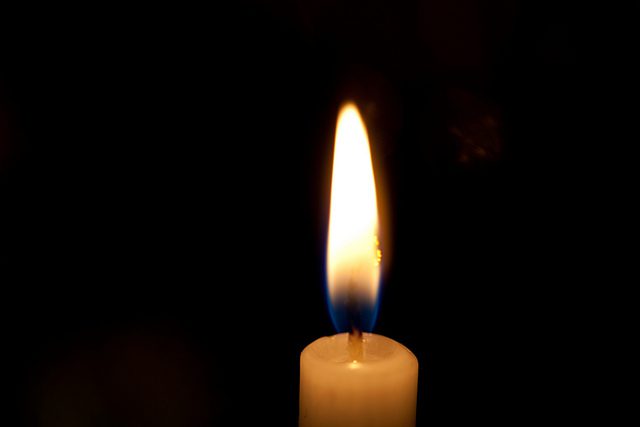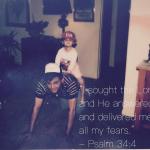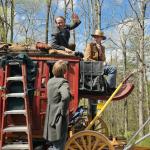In the concrete block, open air home, where baby chicks run around a cage in the same room as the toilet, and where a lean-to wood and metal shack serves as a kitchen, we gather outside, in between rooms. We sit in a concrete space for a concert. In the least likely of places, beside the muddy ground and the open-air sink where their father was just brushing his teeth moments ago, two sisters, Monica and Dina, pull out their instruments. A flute, a cello.
They begin to play together an old hymn I immediately recognize. They only play the melody, but my mind fills in the lyrics.
Blessed assurance, Jesus is mine.
Oh what a foretaste of glory divine…
This is my story, this is my song.
The story and the song, I think. We need both. We need the narrative and we also need the beauty.
I learned about the cello in the dining room of Meemaw’s house, where Sundays after church we would clear the table and Meemaw would demand a family sing-along. My grandparents didn’t grow up with much. Children of western Oklahoma cotton farms during the dust bowl, Meemaw and Pawpaw were hard workers who raised their children to be hard workers as well. Their kids, my dad and Aunt Rita and Aunt Cissy, knew school mattered. But something else mattered just as much to Meemaw. Music. Every day, they practiced their instruments. No complaints. No excuses.
My dad still plays the violin. He moves with it the way real violinists do. He feels the music. It’s the only time I ever really see him dance. He’s no professional, but he loves to play. Every one who watches him knows it.
Cissy plays the cello. It has been her career. She taught elementary school music for years. Rita plays the flute. She’s also a professional and an instructor.
All Meemaw’s children learned their instruments. And when they were grown and we cleared the table after Sunday lunch, we sang. Pawpaw’s deep bass kept the rhythm. Dad’s violin. Cissy’s cello. Rita’s flute. Meemaw on the piano. We sang the old country hymns.
This is my story, this is my song…
Blessed assurance, Jesus is mine.
We sang and my brothers and I rolled our eyes and made faces. But the hymns settled deep in us, where the good, true things always set their roots.
“Learning the instruments changed our lives and the way we think,” Monica says to us, her flute in her lap. “Many girls my age are mothers now. Thanks to the music, we have other things to think.”
Monica is twenty. She explains to us how learning an instrument through World Vision’s children’s orchestra has opened up an entire world to her that wasn’t possible in her rural life. There were no options for her and her sister other than the difficult life of young marriage and motherhood. But, now, she has learned not only to love music. She has learned a trade. She is a music teacher for the younger World Vision children who are only just beginning this program.
“Everyday when we wake up we listen to the natural music around us: the birds, the crickets, the dogs, all the animals,” Monica says through the interpreter, pointing out to the open air of her home. “I may not be competition for the birds, but I am free to play my flute here…”
Dina is free to play her cello as well. She’s twenty-three and, like her sister, works as a music instructor for World Vision. Though their relatives have not been supportive of the idea of these young women learning to play classical instruments or being trained to work outside the home, Dina and Monica’s parents are fiercely proud. They stand behind us, their shoulders back, their faces beaming. Their daughters can do something that so few young people in their village can do. They are competition for the birds.
“It changed the way I am,” Monica says. “The way I think.” She shows us her first instrument, a piccolo, small and delicate like her, but, also like her, bold and quick. Monica is smart. And she has so much to say. Her instrument is giving her a voice.
And it isn’t stopping there. Monica and Dina have two nephews who are part of World Vision’s program now as well. They are learning the cello.
“Our dream is to someday travel abroad and study music and bring back to our students what we learn,” Monica says. And what strikes me is the miracle that Monica has been given the opportunity to dream at all.
World Vision’s music program is unique to Guatemala but its success is beginning to be replicated in other Latin American countries where World Vision works. In village after village, children in poor rural communities are given the chance to discover instruments that many, like Monica and Dina, have never even seen. They can begin to learn to play the violin from as young as three years old. And many do. These children who live in one room cinder block homes, where chickens cluck in and out of the house and no outhouse exists. These children who hardly own a toy, are given a delicate, beautiful instrument–a tiny violin or a cello or flute–and that instrument is treated with the outmost care. It is the most valuable thing in the house and the child knows it.
Do you know what that does for a child? It tells them they are valuable. It tells them they are capable to making something beautiful. It tells them they are more than the conditions of their daily lives.
The truth is, people need more than food and education. People need beauty. We all long for beauty. Every human on this earth needs a song.
There should be a song in every story.
If I reported back to you all that is happening in World Vision. I could say kids are being fed. But the song is found in mothers teaching other mothers to feed to their children well.
Through World Vision, children are being educated. But more than that, they are learning to make music. This is the song in the story.
I watch those sisters play, smiling at each other when one of them makes a mistake. They remind me of my aunts and my grandma. They remind me of being a kid in a family that loved music. They remind of the song in my story.
I tell Dina that. I pull her aside and tell her about my aunts. About the cello and the flute. About the hymns we sang growing up. Blessed assurance, Jesus is mine…This is my story, this is my song. We hug and she leaves for her room. When she returns, she is carrying a beautiful, blue-beaded necklace, and she gives it to me.
I put it on. What can I say? Muchas gracias. Muy bonita. We kiss goodbye.
I walk down the long alleyway, past open cinder block homes, through mud and standing water. And my eyes fill with tears. Some moments in life are just too beautiful. Two sisters making music in a broken place. One giving her treasure to the likes of me. I don’t deserve Dina’s gift. But that is how music works, right?
Grace is the song in the story. Grace has always been the song.
Will you consider supporting the amazing work of World Vision? You can sponsor a Guatemalan child here.
Photos Courtesy of Laura Reinhardt




